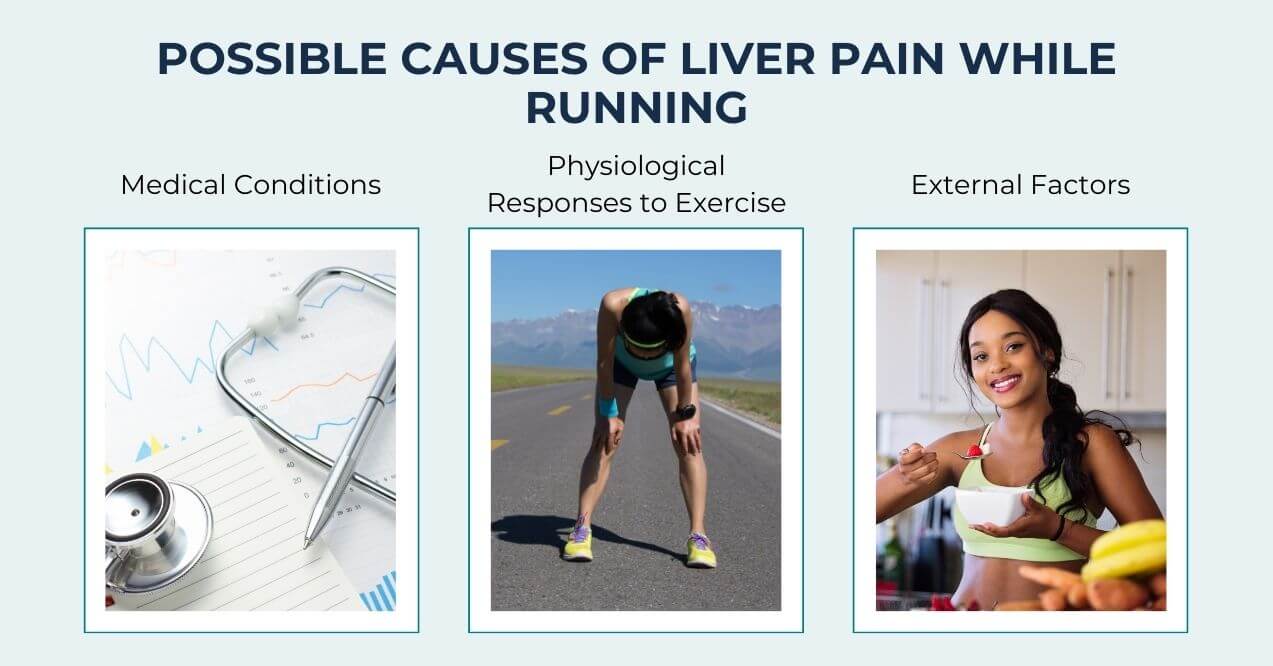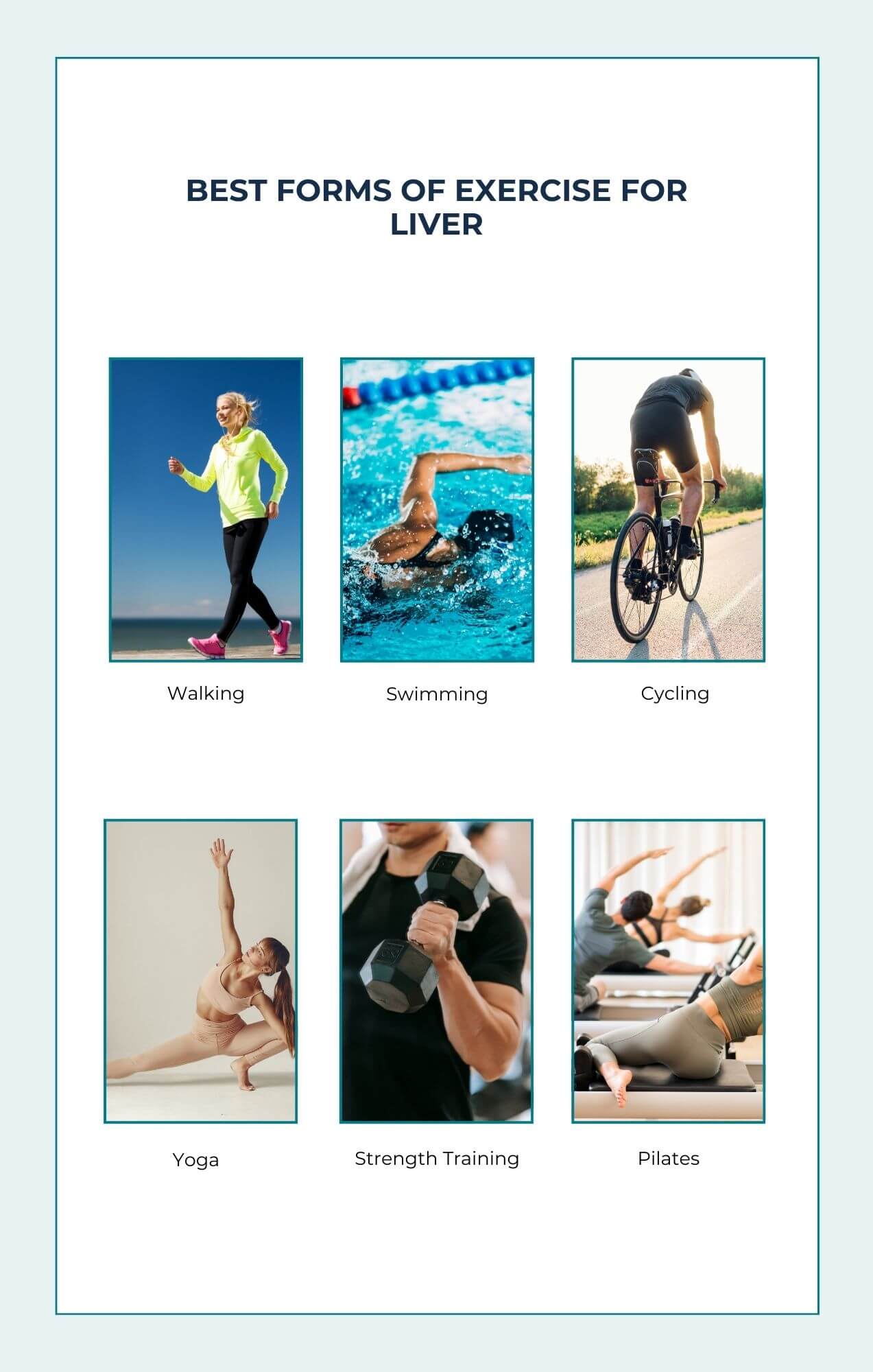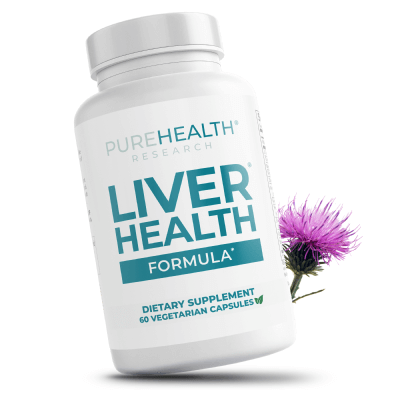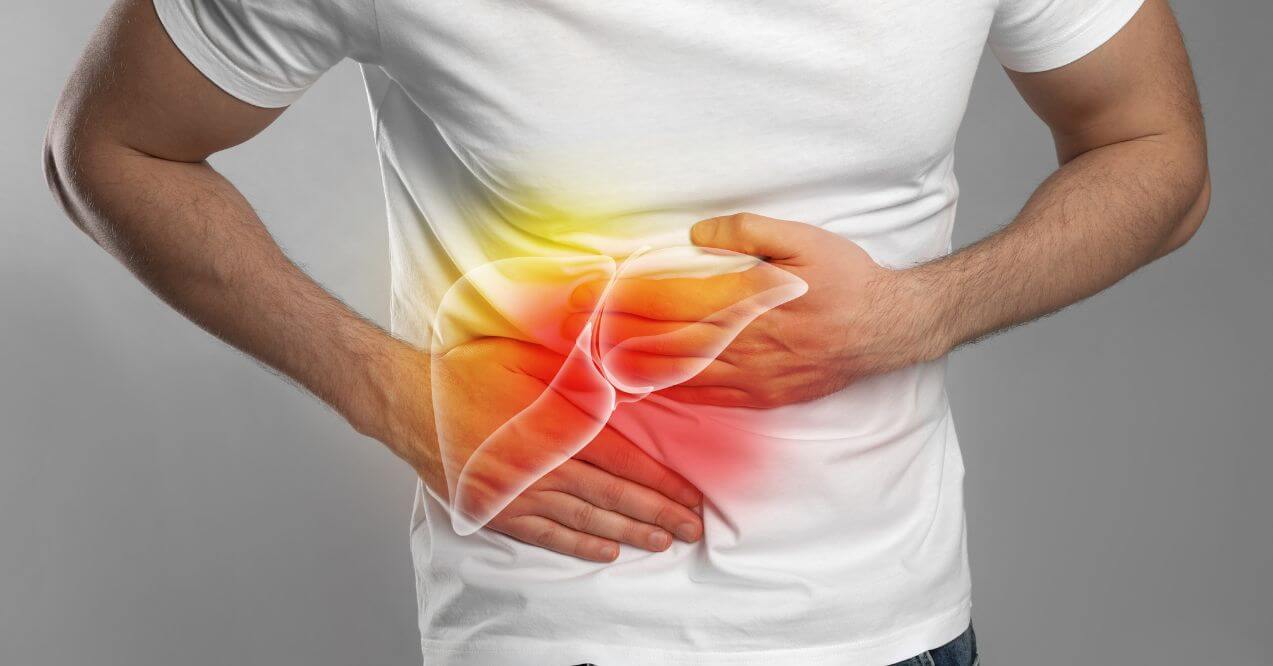Why Does My Liver Hurt When I Run?


Why does my liver hurt when I run? The sensation of pain in the region where the liver resides during or after a run can be both uncomfortable and alarming. It’s essential to understand that while this experience is not uncommon, the true source of the pain might not always be the liver itself.
In this blog post, we’ll delve into the role of the liver during exercise, explore potential reasons behind the discomfort, and discuss how to differentiate actual liver pain from other types of abdominal distress related to pain in liver while running.
Additionally, we’ll cover the best forms of exercise for maintaining liver health and strategies to prevent discomfort in the future. Whether you’re a casual jogger or a dedicated athlete, understanding these dynamics can help you run more comfortably and with better awareness of your body’s signals.
The Role of Liver in Exercise
The liver plays a role in overall health and is particularly crucial during physical activities such as running. As one of the body’s largest organs, the liver is central to metabolizing nutrients, which is essential during exercise. It processes the fats, proteins, and carbohydrates that we consume, converting them into usable energy. This energy is then supplied to muscles throughout the body, fueling them during physical exertion.
During exercise, the liver’s role extends to regulating glucose levels in the blood. It releases glucose stored as glycogen when blood sugar levels drop, ensuring a steady energy supply. This function is vital during long-duration activities like running, where energy demand is high and constant. Additionally, the liver helps in the metabolism of lactic acid produced by muscles during intense exercise, thus aiding in energy production and preventing fatigue.
Furthermore, the liver is also involved in the regulation of fat storage. It converts excess calories into fats, which are then stored or used as energy depending on the body’s needs. Understanding these functions underscores the importance of liver health for athletic performance and overall well-being.
For those concerned about liver health, it’s important to understand what are the 4 stages of liver disease, ranging from simple inflammation to severe, life-threatening liver failure, which can critically affect these vital functions.
Why Does My Liver Hurt When I Run? Is It Actually My Liver?

Many runners have experienced a sharp pain in the upper right side of the abdomen during a run, often leading to the concerning question: why does my liver hurt when I run? However, the sensation is not necessarily an indication of liver pain. More often, this discomfort is due to other factors that can be easily misunderstood.
Common Misconceptions About Liver Pain During Running
One common misconception is that the liver itself is in distress. In fact, what many attribute to liver pain is likely transient abdominal pain, more commonly known as a side stitch. This pain occurs just below the rib cage and can be mistakenly associated with the liver because of its location. However, the liver is a non-complaining organ, and true liver pain is rare and usually a sign of severe underlying conditions, not a response to physical exercise.
Potential Causes of Discomfort
The most frequent culprit behind the so-called “liver pain” felt during running is actually a phenomenon called exercise-related transient abdominal pain (ETAP). This discomfort is thought to arise from several factors:
- Diaphragm Spasms – Often, the pain attributed to the liver is actually a side effect of diaphragm stress or spasms. The diaphragm, which sits above the liver, can become overworked during strenuous running, especially if breathing isn’t optimal. This can lead to a stitch-like pain that is often mistaken for liver pain.
- Gastrointestinal Distress – The jostling and increased intra-abdominal pressure during running can also cause gastrointestinal discomfort. This includes the stomach and intestines, which are located near the liver. Factors such as eating too close to your run time or consuming the wrong types of food can exacerbate this issue.
- Gallbladder Issues – Located beneath the liver, the gallbladder can also cause pain in that area, especially if there are gallstones or cholecystitis (inflammation of the gallbladder). This pain can be sharp and may worsen during physical activities like running.
Liver Pain as a Symptom of Underlying Health Issues
While it’s rare for the liver itself to cause pain during exercise, existing liver conditions can potentially be exacerbated by physical activity. For instance, individuals with underlying liver diseases like those inflamed by pathogens, excess fatty accumulation, or scarring might experience discomfort as the disease progresses or if physical exertion aggravates their condition. This can lead some to wonder, why does my liver hurt when I run? Knowing the stages and symptoms of liver disease, such as those outlined in the four stages of liver disease, can help in identifying and addressing these issues early.
External Factors Influencing Perceived Liver Pain
- Diet and Hydration – Proper nutrition and hydration are crucial for all forms of exercise, including running. An imbalance in electrolytes, dehydration, or consuming hard-to-digest foods before running can lead to discomfort near the liver area. Ensuring adequate hydration and a well-balanced meal well before running can help minimize this risk.
- Running Technique and Posture – Poor running mechanics or improper posture can lead to unnecessary stress on the body, including the abdominal area. This can cause sensations of pain or discomfort that might be mistaken for liver pain.
In short, while the pain felt during running is commonly attributed to the liver, it is more likely caused by other factors like diaphragm spasms, gastrointestinal issues, or muscle strains. Actual liver pain is rare and typically a sign of more severe health issues. Runners experiencing persistent or severe pain should consult a healthcare provider to rule out any significant conditions. Proper attention to diet, hydration, and running form can help mitigate most of the discomfort erroneously attributed to the liver during exercise.
Possible Causes of Liver Pain While Running

While it’s uncommon for the liver itself to experience pain during running due to the reasons discussed previously, there are specific conditions and external factors that could lead to discomfort in the area of the liver. Understanding these can help runners identify and address the real causes of their discomfort.
Medical Conditions
- Excess Liver Fat – This condition, characterized by excess fat stored in liver cells, can make the liver more sensitive and prone to discomfort during activities that involve intense movement or pressure in the abdominal area.
- Liver Inflammation – Pathogenic conditions , which cause inflammatory activity in the liver, can lead to a heightened sensitivity that might be felt more acutely during the physical stress of running.
- Gallstones – While not part of the liver, gallstones in the gallbladder can cause pain that radiates into the liver area. The jostling movement of running can aggravate this pain.
Physiological Responses to Exercise
- Increased Circulation and Liver Enlargement – During strenuous exercise, the liver receives more blood. This increased volume and flow can cause the liver to enlarge temporarily, stretching the liver’s capsule. This is a benign condition but can cause discomfort during high-intensity workouts.
- Pressure from Diaphragm Movement – Intense or improper breathing techniques during running can lead to diaphragm stress, which directly impacts the liver given its location just below the diaphragm.
External Factors
- Hydration – Inadequate hydration before or during a run can lead to dehydration, exacerbating cramping and discomfort around the liver area which could lead to the question: “why does my liver hurt when i run?”. Proper hydration helps maintain blood volume and flow, easing the strain on bodily organs, including the liver.
- Dietary Choices – Eating large meals or high-fat foods close to running time can lead to indigestion and increased abdominal pressure, which might cause discomfort mistaken for liver pain. Lighter, easily digestible meals are recommended before running.
- Running Posture – Poor running posture can lead to excessive pressure on the abdomen, affecting the liver. Maintaining a good posture helps distribute impact more evenly and can reduce the risk of discomfort.
Understanding these potential causes provides a clearer picture of what might actually be happening when runners experience pain in the liver area. Addressing these issues can help minimize discomfort and improve the overall running experience.
Best Forms Of Exercise for Liver

To promote liver health and potentially reduce the likelihood of experiencing discomfort while exercising, certain forms of physical activity can be particularly beneficial. Here are some effective alternatives:
- Walking – A low-impact activity that can be sustained for long periods, walking helps improve circulation and body weight management without stressing the liver.
- Swimming – This full-body exercise puts minimal stress on the body’s joints and organs while providing excellent cardiovascular benefits and helping to maintain healthy body weight.
- Cycling – Whether on a stationary bike or on the road, cycling offers a low-impact way to boost cardiovascular health and manage body fat, which is essential for promoting liver health.
- Yoga – Known for its stress-reducing and flexibility-enhancing benefits, yoga also improves digestion and circulation, which are crucial for liver health.
- Strength Training – Building muscle helps improve metabolism, reduces liver fat, and enhances overall health. Focus on moderate, controlled movements to avoid excessive abdominal pressure.
- Pilates – Similar to yoga, Pilates focuses on core strength, flexibility, and overall body alignment, which can help maintain proper internal organ function, including the liver.
These exercises not only support liver health but also provide a broad range of physical and mental health benefits.
Preventing Liver Pain During Running
To prevent liver pain during running and to enhance overall liver health, runners should consider a holistic approach that incorporates general wellness strategies along with targeted measures. Here’s how focusing on the best ways to improve liver function, understanding the signs of liver detox working, and knowing how to improve liver function can be crucial.
Regular Health Check-Ups
Monitoring liver health is vital, particularly for those who engage in regular, strenuous exercise like running. Regular health check-ups can catch early signs of liver distress before they become severe. Liver function tests, which are simple blood tests, can assess the levels of proteins and liver enzymes in the blood, indicating the health of your liver.
Regular screenings help ensure that any potential issues are addressed promptly, allowing adjustments in exercise and lifestyle to better support liver health. These check-ups are also a chance for runners to discuss with healthcare providers the best ways to support liver function through exercise.
Proper Hydration and Nutrition
Maintaining optimal hydration and following a liver-friendly diet are crucial for preventing liver pain and enhancing liver function during running:
- Hydration: Ensure you drink enough fluids before, during, and after your runs to prevent dehydration. The liver requires water to process nutrients and flush out toxins effectively. A hydrated body helps ensure smoother metabolic processes and reduces the risk of cramps and discomfort.
- Nutrition: Eating a balanced diet rich in fruits, vegetables, lean proteins, and whole grains supports liver health. Avoid heavy meals and high-fat foods right before running to minimize digestive discomfort. Foods rich in antioxidants can help improve liver function by reducing oxidative stress.
Additionally, supplements such as Liver Health Formula from PureHealth Research can be an excellent choice to support liver health with these preventive strategies. Endorsed by Dr. Holly Lucille, ND, RN, this, one of the best supplements for liver health, includes several key ingredients known for their benefits to liver health. Milk thistle, a central component, has been widely studied for its defending effects on the liver, promoting regeneration of decaying liver tissue and acting as a powerful antioxidant to combat free radicals. Turmeric, another critical ingredient, provides substantial anti-inflammatory benefits, which is crucial in reducing liver inflammatory activity and supporting the processing of nutrients during the heightened metabolic activity seen in runners.

Additionally, the formula contains dandelion root, which has been used traditionally to revitalize liver function by assisting detoxification and optimizing digestion. This ensures that toxins are efficiently processed and expelled, reducing the risk of inflammatory responses or discomfort during physical exertion. Beetroot is also included for its ability to support circulation and optimize liver function by helping nutrients and oxygen be delivered efficiently throughout the body.
Incorporating Liver Health Formula into your daily routine can provide an extra layer of support for your liver, especially valuable for those leading active lifestyles. This supplement complements a proper diet and hydration, helping your liver receive the essential nutrients it needs to function optimally and support your running endeavors effectively.
Conclusion
So, why does my liver hurt when I run? In this blog, we have explored various aspects of liver discomfort during running, clarifying misconceptions and offering practical advice to enhance liver health and exercise experience. Here are the key takeaways. The discomfort often attributed to liver pain is usually not from the liver but related to side stitches or transient abdominal pain. The liver is crucial in energy metabolism during exercise, but actual liver pain during running is rare and might indicate underlying health issues. Engaging in low-impact exercises like walking, swimming, or cycling can support liver health and reduce the risk of discomfort. Regular health check-ups, proper hydration, and a liver-friendly diet are essential for maintaining liver health and preventing pain during running. Implementing these strategies can help runners enjoy their activities without discomfort and maintain optimal liver health.
Yes, running is beneficial for your liver. It boosts overall circulation, aids in weight management, and enhances metabolism, all of which contribute to better liver health by reducing the risk of fatty liver disease and improving detoxification processes.
Typically, exercise does not damage the liver. However, extreme physical exertion without adequate rest or nutrition can lead to a condition known as exercise-induced liver injury, which is rare and usually reversible with proper management and recovery.
It is not normal for the liver itself to hurt because it has few pain-sensitive nerves. What is often perceived as liver pain during exercise is likely related to muscle strain, diaphragm spasms, or other non-liver related issues. Persistent pain should be evaluated by a healthcare professional.
Popular Articles
Advertisement. This site offers health, wellness, fitness and nutritional information and is designed for educational purposes only. You should not rely on this information as a substitute for, nor does it replace, professional medical advice, diagnosis, or treatment. If you have any concerns or questions about your health, you should always consult with a physician or other health-care professional. Do not disregard, avoid or delay obtaining medical or health related advice from your health-care professional because of something you may have read on this site. The use of any information provided on this site is solely at your own risk.

















